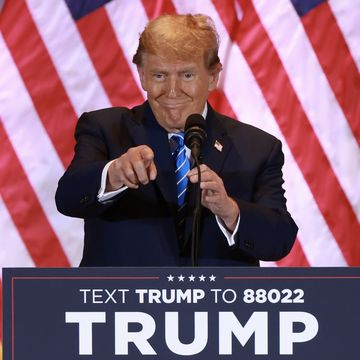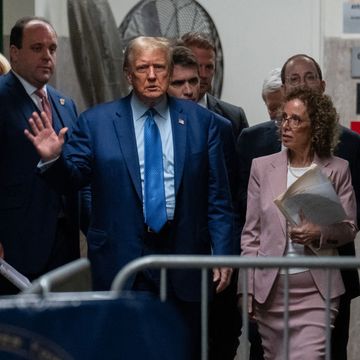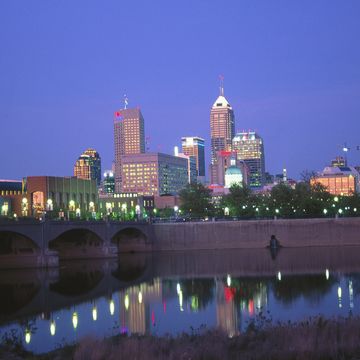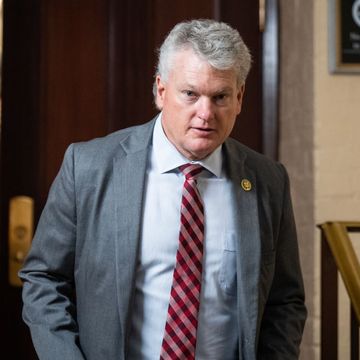Make no mistake. I would rather that Justice Neil Gorsuch were back home in the Rockies, running the chair-lift for a living. But, as Mark Joseph Stern points out in Slate, for all Gorsuch's faults, in deciding in favor of the plaintiff in the case of McGirt vs. Oklahoma, Gorsuch further revealed himself to be the best friend Native Americans have had on the Supreme Court since...well, since forever.
The most obvious answer is that Gorsuch is simply more sympathetic to tribal rights than his conservative colleagues. And if that is indeed the case, then it should come as no surprise. As a judge on the 10th U.S. Circuit Court of Appeals, Gorsuch consistently ruled in favor of tribes’ right to govern their own affairs and rely upon promises made by the state and federal governments. For that reason, multiple tribes endorsed Gorsuch’s nomination to the Supreme Court. Alvin Not Afraid Jr., chairman of the Crow Tribe Executive Branch, told the Senate that Gorsuch “has consistently demonstrated not only a sound understanding of Federal Indian Law principles, but a respect for our unique and closely held cultural values.” John Dossett, then general counsel of the National Congress of American Indians, wrote that Gorsuch “appears to be both attentive to the details and respectful to the fundamental principles of tribal sovereignty and the federal trust responsibility.”
Unlike most Supreme Court justices in history, and again on Monday, Gorsuch has insisted that, when the United States entered into treaties with the Native peoples, those treaties actually are worth the paper on which they're printed. As Stern points out, this is not a recent development, and Gorsuch has evinced a unique depth of knowledge of how those treaties were negotiated and, also, how they were casually abrogated, over and over again. Stern cites an overlooked case from March of 2019.
Siding with the Yakamas, Gorsuch explained that when the court is “dealing with a tribal treaty,” it must “give effect to the terms as the Indians themselves would have understood them.” He pointed out that the federal government “drew up this contract” and employed its “power of the pen” to “its advantage.”
"During the negotiations “English words were translated into Chinook jargon … although that was not the primary language” of the Tribe. After the parties reached agreement, the U. S. negotiators wrote the treaty in English—a language that the Yakamas couldn’t read or write. And like many such treaties, this one was by all accounts more nearly imposed on the Tribe than a product of its free choice."
Gorsuch explained that in the Yakama language, the phrase “in common with” actually meant “[for] general use without restriction.” Thus, they believed the treaty gave them “the right to travel on all public highways” without being taxed “while engaged in the transportation of tribal goods.” As a result, Washington may not tax gas that Yakamas import onto tribal land via highways. Gorsuch concluded:
"Really, this case just tells an old and familiar story. The State of Washington includes millions of acres that the Yakamas ceded to the United States under significant pressure. In return, the government supplied a handful of modest promises. The State is now dissatisfied with the consequences of one of those promises. It is a new day, and now it wants more. But today and to its credit, the Court holds the parties to the terms of their deal. It is the least we can do."
Russell Means could have written those words. Hell, Crazy Horse could have made that argument.
The Court always has had justices who produced opinions that appear to be eccentric in the context of their careers and their public personae. Justice Antonin Scalia busted the W Administration in Hamdi v. Rumsfeld, but that was in dissent. The only comparison that comes immediately to mind is Dwight Eisenhower's appointment of Earl Warren as Chief Justice. Up until then, Warren was most notable for having been the architect for the inexcusable detention of Japanese-American citizens during World War II, which made him seem like a pretty safe conservative bet. Warren took the gig and, under him, starting with Brown v. Board of Education, and the able assistance of another Eisenhower appointee, William Brennan, the Supreme Court inaugurated a kind of golden age for civil rights and civil liberties. Later, when ol' Ike was asked for his two greatest mistakes as president, he replied, "They're both on the Supreme Court."
Neil Gorsuch seems to be the Warren/Brennan on Native American rights. America is a very weird town.
Respond to this post on the Esquire Politics Facebook page here.

Charles P Pierce is the author of four books, most recently Idiot America, and has been a working journalist since 1976. He lives near Boston and has three children.













